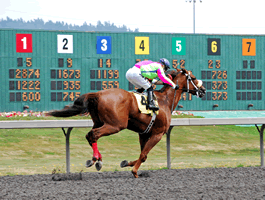 “It is time we stopped thinking of free time as ‘time out’ for kids and realized that it is a vital path to adult happiness and life success”
“It is time we stopped thinking of free time as ‘time out’ for kids and realized that it is a vital path to adult happiness and life success”
Last week a close friend of mine invited one of her daughter’s friends over for an afterschool play. Her daughter is in year five at their local state primary school. The girl was unable to accept the invitation on any day in the week as she was booked in for activities Monday to Friday. These would be followed by homework, dinner and bed.
In the same week another of my friend’s invited a seven year old girl over for a play with her daughter, also seven. Both of these girls are in year two at the same local school. This invited girl was unable to visit as she was attending an additional educational program that day. This program, which I shall not mention by name, is one of many that offer additional lessons in literacy and numeracy out of school time.
Occurrences of ‘kids too busy to play’ are not uncommon; in fact, they appear to be rapidly becoming the norm. Along with an increasingly loud call to start literacy and numeracy earlier in our children’s school lives, comes a larger than ever trend to occupy young children in organized extra curricular activities and extra schooling.
A recent flurry of books applauding the benefits of practice from an early age have been avidly read by anxious parents eager to ensure their kids will survive in the competitive world around us. Parents fears are further fuelled by news items and reports about Australia’s ‘struggling’ academic record compared with other developed countries. It appears that the Chinese are rapidly cornering the market in academic achievement. It also appears that the only chance of academic success comes with extra tuition, be it in academic subjects, sports or the arts.
When I have gently challenged parents on the merits of putting an able seven year old in a Saturday math coaching program, I have been told that it is necessary to help them attain high grades. Parents are determined that their children will leave year twelve with high scores, awards, medals and great looking cvs. As a parent it is all too easy to get caught up in the race to achievement. What’s more it is even easier to be left feeling inadequate if you leave your own children to ‘merely’ entertain themselves at the weekend.
If you ask a parent what it the one thing they most want for their children, they invariably answer ‘I want them to be happy”. The desire for parents to turn their children into academic awardees is generally based on an assumption that happiness comes from opportunity, opportunity comes from academic accomplishment, accomplishment comes from practice. It sounds logical, doesn’t it?
The worrying truth about all this is that the increased emphasis on structured and organized activity is having detrimental effects on both our children’s happiness and on their acquisition of life skills.
In an article entitled ‘The Test Chinese Schools Still Fail’ in The Wall Street Journal in December 2010, Chinese education expert Jiang Xueqin wrote that ‘the failings of a rote-memorisation system [like that now in China] are well known: lack of social and practical skills, absence of self-discipline and imagination, loss of curiosity and passion for learning”. The more we try to mirror China’s system, the more we mirror these issues in our children and young adults.
What’s more, increasing numbers of studies are identifying significant links between a society’s loss of free time for children, and their mental health. Extra schooling and extra curricular activities take away important free time for play and creativity. This equates to greater rates of depression and anxiety in our kids along with an increased inability to self-regulate emotions, think creatively and make self-determined decisions in later life.
Cambridge researcher David Whitebread recently wrote a great article about the detrimental effect of starting formal education too soon. In his article ‘Too Much Too Soon’ he describes the vital importance of free play in the development of learning and problem solving. He cites studies that show that superior learning and motivation arise from free play as opposed to instructional approaches to learning. He also cites longitudinal studies that show that children actually obtain better academic, motivational and wellbeing outcomes if involved in pre-school play-based programs.
Decades of data collected from American children has shown that creativity is declining in our children along with a rise in mental health issues and loss of self-directed engagement in learning. In particular, creative elaboration (the ability to take an idea and expand on it in an interesting and novel way) is declining at a worrying rate. Yet, creative collaboration is a better predictor of real world achievements than IQ, high school grades or others guess’s about who will achieve the most.
In further support of these many concurring studies, other research has found that children who start formal literacy studies at age seven (year two) as opposed to age four or five (pre-primary) are more likely to read for pleasure at age eleven and more likely to actually comprehend the text they are reading. Not only is there absolutely no association between reading achievement and school entry age (age five or age seven); those who start formal learning later in life appear to end up happier, more motivated and more in tune with what they are doing.
It seems that our fears of failure within our developed society have led us into an increasing frenzy of giving kids more and more contents and less and less ability. It appears that we are trying to quench our kids thirst for life with salty water.
In contrast, kids learn many of the vital ingredients of a successful social, emotional and academic life by simply being left alone to play and be creative. They learn how to get along with each other (kids do not tolerate tantrums in other kids!). They learn how to self-regulate and deal with their own emotions and how to engage in their passions. They learn skills for modern day survival and how to foster their creativity.
It is of little surprise to note that there is a direct relationship between time spent playing with others and bullying. Traditional hunter-gather societies that encourage endless free play all the way to adolescence experience an almost complete lack of bullying. Their kids have learnt how to get along with each other and how to empathize and understand each other.
I am not advocating that we forget formal education and let our kids simply play until adulthood. Rather I do believe that it is vital that we pull in the reigns on our expectations of formal structured teaching. Kids, especially young kids, need time for free play and unstructured creativity. Time to be bored and to beat boredom. Time to find a way to engage in life and learn skills for themselves.
Free time is not down time from education, it is a vital part of education, perhaps the most vital part of all.
Dr Helen Street has an extensive background in social Psychology with a passion for wellbeing in education. She is also chair of The Positive Schools Conferences (positiveschools.com.au) and will be talking about creativity at this year’s event in May.


